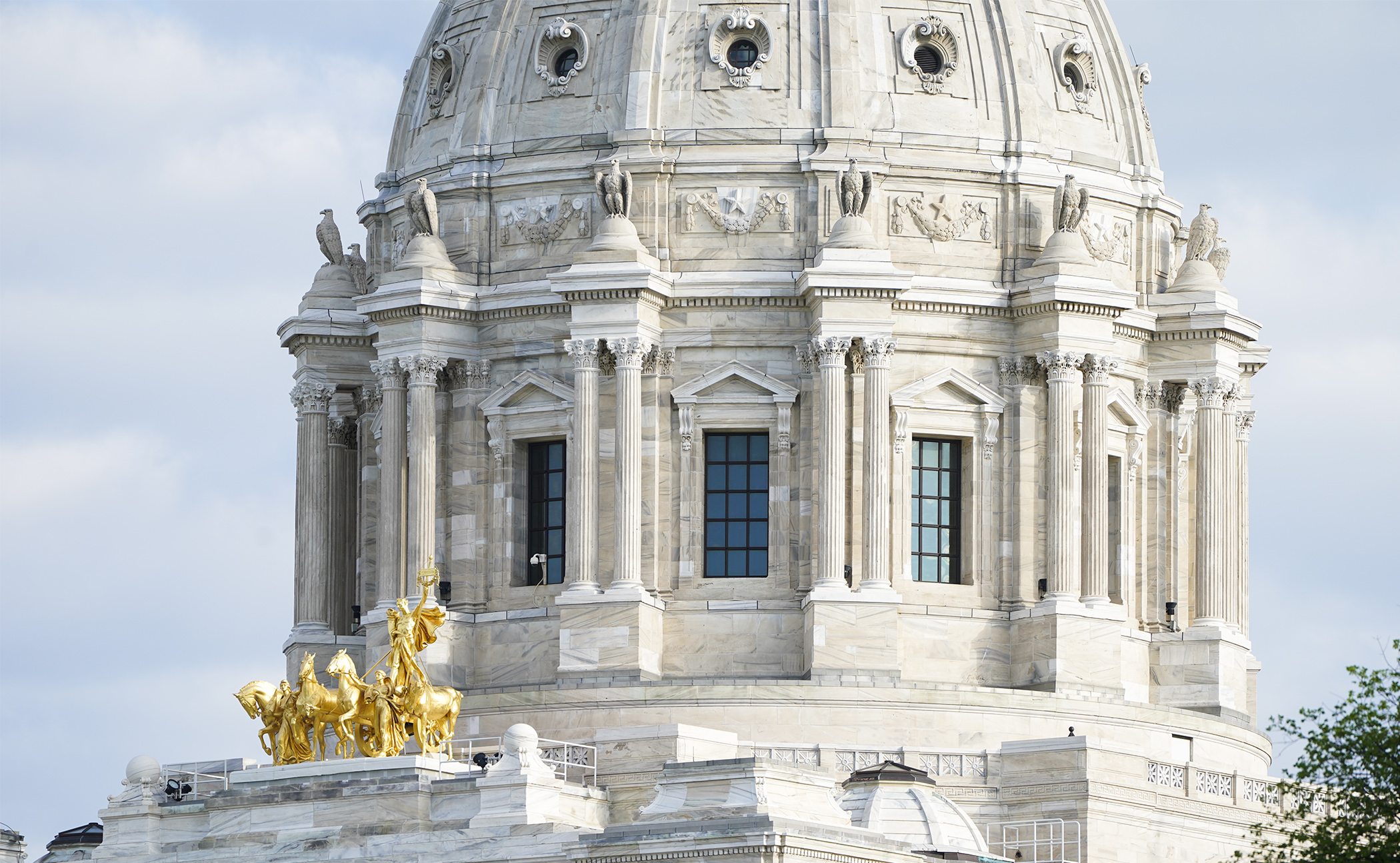Governor, legislative leaders agree on budget targets

Conference committee members who have been wondering how much they can spend on their part of the budget got an answer Wednesday morning when Gov. Tim Walz and the leaders of the House and Senate announced an agreement on budget targets.
Under the signed agreement between Walz, House Speaker Melissa Hortman (DFL-Brooklyn Park), and Senate Majority Leader Jeremy Miller (R-Winona), the Legislature should focus upon allocating $1.6 billion in supplemental spending and $1.6 billion in tax cuts in the current biennium. That would reduce a projected budget surplus of $7.1 billion to $3.9 billion.
“This bipartisan agreement is a big step toward finishing up this year’s legislative session and making investments in the things we know Minnesotans care about,” Walz said in a statement. “We have an historic opportunity to make Minnesota the best state in the country for kids and families, and this budget can help get us there.”
[MORE: View the combined House/Senate schedule to see when conference committees plan to meet]
Under the agreement, there would be more money available in the next biennium, with a target of $2.4 billion in spending and $2.4 billion in tax cuts agreed to for the 2024-25 biennium. If projected revenues hold true, that would leave $4.2 billion on the bottom line.
For the current biennium, here are the supplemental spending budget targets for each area:
- transportation, $360 million;
- E-12 education, $320 million;
- health and human services, $300 million;
- public safety, $200 million;
- cash for bonding, $150 million;
- housing, $50 million;
- state government, $35 million;
- flexible fund for Infrastructure Investment and Jobs Act, $30 million;
- mental health, $28 million;
- broadband, $25 million;
- energy, $23 million;
- higher education, $20 million;
- drought relief, $18.4 million;
- jobs, $11 million;
- environment, $10 million;
- general obligation bond debt service, $8 million;
- agriculture, $7.5 million;
- commerce, $3 million; and
- an ombudsperson for foster youth, $800,000.
Of the transportation target, $282 million must go toward providing matching dollars for Infrastructure Investment and Jobs Act funding.
“Building on our strong bipartisan budget framework, this agreement includes significant new investments throughout our state budget, especially in the areas of transportation, housing, and broadband,” Hortman said in the statement. “We are continuing to work together to find compromise and make a difference in the lives of Minnesotans.”
“In addition to permanent ongoing tax relief, this agreement makes targeted investments to address critical needs across the state,” Miller said in the statement. “This agreement focuses spending towards public safety, education, mental health services, roads and bridges, and workforce development. It will help Minnesotans at a time when they need it most.”
Under the state’s constitution, the Legislature has until 11:59 p.m. Sunday to complete its work.
Related Articles
Search Session Daily
Advanced Search OptionsPriority Dailies
Speaker Emerita Melissa Hortman, husband killed in attack
By HPIS Staff House Speaker Emerita Melissa Hortman (DFL-Brooklyn Park) and her husband, Mark, were fatally shot in their home early Saturday morning.
Gov. Tim Walz announced the news dur...
House Speaker Emerita Melissa Hortman (DFL-Brooklyn Park) and her husband, Mark, were fatally shot in their home early Saturday morning.
Gov. Tim Walz announced the news dur...
Lawmakers deliver budget bills to governor's desk in one-day special session
By Mike Cook About that talk of needing all 21 hours left in a legislative day to complete a special session?
House members were more than up to the challenge Monday. Beginning at 10 a.m...
About that talk of needing all 21 hours left in a legislative day to complete a special session?
House members were more than up to the challenge Monday. Beginning at 10 a.m...